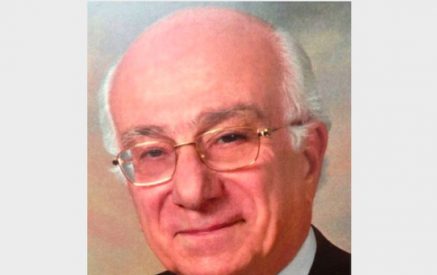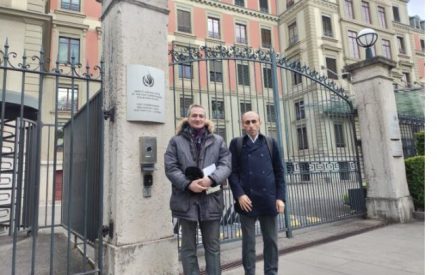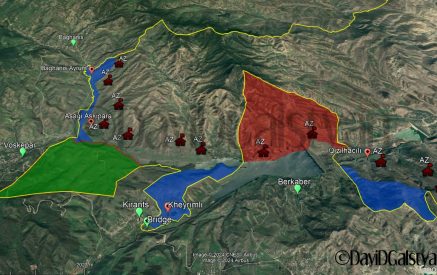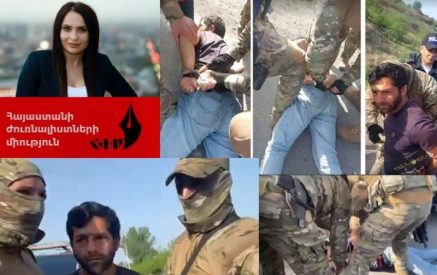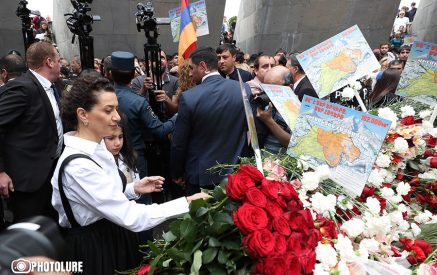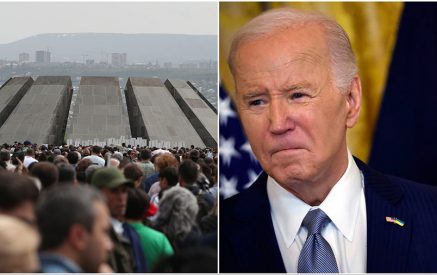Machiavelli once wrote that you can conquer a people, but you can’t conquer their memories. Suppressed memories, he concluded, will only have a way of cropping up whenever they get the chance. There can hardly be a better modern example of this than the massacre of the Armenians during the First World War. Even though over 90 years has passed since Armenians living in the former Ottoman Empire were forcibly deported, and even though the memory of what happened was first suppressed and then later neglected, the past two decades have seen increasing international focus on what happened.
Most recently, the Danish Royal Library came under hefty criticism from both sides for its decision to organise an exhibition about the Armenian Genocide.
First, they were criticised by the Turkish Embassy. Then, when the library decided to allow the Turks to present their side of the story, the Armenian side protested. The decision was seen as kowtowing to Turkey and continuing the denial that lies at the heart of the dispute.
But how can something that happened over 90 years ago continue to divide two countries? And why should the Royal Library be dragged into a conflict that boils down to the Armenians’ struggle for the world to recognise what happened to them during the war – before modern Turkey even came into existence? It has happened because the question of the Armenian genocide has become a part of the global culture of memory, which over the past two decades has come to play an increasingly significant role in inter-state relations and in the relationship between minority groups and states. The question touches on not just state policies towards minorities, it also touches on foreign policy and security policy. States can improve their relations with their neighbours if they own up to past crimes. The most famous example is West Germany accepting its responsibility for crimes committed against the Jews during the Second World War, symbolised by the spontaneous gesture of humility and penance by the chancellor of West Germany, Willy Brandt, when he fell on his knees at the memorial to the victims of the 1943 Warsaw Ghetto Uprising. Other gross violations of human rights have come to define which historical signals states choose to show to the rest of the world.
Read also
The row over the Royal Library’s exhibition shows how even a small country like Denmark can get caught up in other countries’ conflicts over how a specific period of history should be interpreted. Disagreements about how the past should be interpreted can grow into a diplomatic dispute and come to determine which signals independent states show the rest of the world. The US Congress has, on more than one occasion, been close to ratifying a resolution that would recognise the Armenian Genocide, but each time pressure from Turkey has prevented this from happening.
It is actions like these that Armenian interest groups, as well as historians and other scholars, say constitute a Turkish attempt to downplay the brutal deportation of Armenians and other Christian groups. As Taner Akcam, a Turkish historian now teaching at Clark University in the US, wrote in the New York Times recently: “Turkey’s attitude towards the Armenians sends a worrying signal to the Christian minority in the region. In such an interpretation, responsibility for preserving not just Turkey’s modern history, but also its Ottoman history, needs to be seen in terms of overarching questions of security, stability and democracy in a region where continued denial of past transgressions only adds to tensions between ethnic and religious groups.”
Akcam’s views can also be seen as part of another trend in this global culture of memory; it is expected that countries will own up to their pasts the way Germany did. Germany has admitted its historical guilt and has set the standard for how other states should act when faced with a problematic past.
Nowadays, we expect that a state admits its guilt, atones for its transgressions and compensates its victims. This is precisely what Turkey is fighting against. Turkey does not believe it is responsible for crimes committed by the Ottoman Empire during the First World War. Nor does it see itself as having done something comparable to Germany or that it needs to atone for anything or compensate anyone. As long as there is an expectation that Turkey will face up to its violent past, Turkey will continue to resist international pressure to recognise the genocide.
However, letting Turkey present its version of the massacre of the Armenians will not contribute to the process being carried out by European and American historians to draw up a modern picture of the Armenian Genocide. The Armenians will feel Denmark has bowed to Turkish pressure. Instead, the library should support the efforts of historians to place the Armenian Genocide in a historical context together with other religiously motivated violence that arose as a result of the decline of the Ottoman Empire. Doing so would move the discussion away from the difficult issue of whether or not it was genocide and towards historical research and documentation, for the benefit of everyone involved.
Memory is the way we recall what happened in the past. History is what makes us wiser about it.
The author Cecilie Banke is the head of the Danish Institute for International Studies’ holocaust and genocide research unit
https://cphpost.dk

